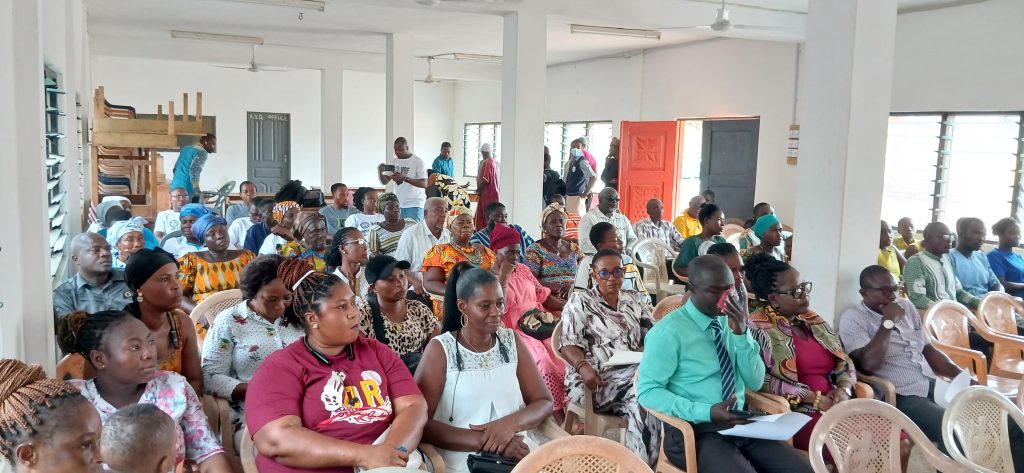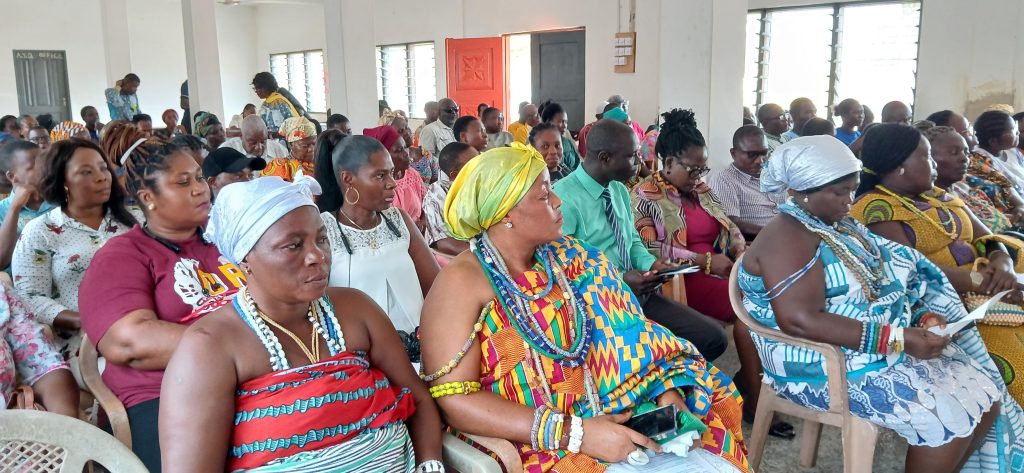By Opesika Tetteh Puplampu Big Ada, November 22, GNA - The Commission on Human Rights and Administrative Justice (CHRAJ) in partnership with...

By Opesika Tetteh Puplampu
Big Ada, November 22, GNA - The Commission on Human Rights and Administrative Justice (CHRAJ) in partnership with the United Nations Population Fund (UNFPA), has worked with locals in Ada to enhance collaborative efforts against Sexual and Gender-Based Violence (SGBV).
The event, which was conducted under the UNFPA program focused on increasing access to rights-based integrated GBV services, also sought to enhance availability of survivor-focused services in Ghana.
It united state institutions, civil society organizations, traditional leaders, faith-based groups, service providers, survivor advocates, and the media, who recognized systemic shortcomings and suggested actionable steps to enhance accountability within community, health, psychosocial, legal, and law enforcement systems.
Ms. Gloria Asantewaa Gyedu, Head of Programmes and Projects at CHRAJ, emphasized the country's responsibility to guarantee that victims of gender-based violence receive support, care, and justice without any form of discrimination.
She observed that while Ghana has advanced in establishing mechanisms to address GBV, numerous victims still encounter challenges when reporting incidents and obtaining assistance.
Mrs. Elizabeth Hammond-Agyemang, the Director of CHRAJ for the Ada East and West Districts, described GBV as any act of violence directed at an individual purely because of their gender, noting that while women and girls are predominantly impacted, GBV affects people of all genders and social backgrounds.
Mrs. Hammond-Agyemang highlighted that no one has the right to mistreat another individual, and consequently called on community members to respect the dignity and rights of everyone, irrespective of their background, looks, or societal position.
She mentioned that the different types of GBV encompassed financial abuse, which involved ignoring a child's fundamental requirements like food, housing, schooling, clothing, and medical care.
She emphasized that sexual violence encompasses unwanted sexual advances or contact with sensitive body areas; rape, which is non-consensual sexual intercourse between individuals aged 16 and older; and defilement—sexual activities involving children between the ages of zero and 15 who cannot legally consent.
Other types of GBV encompass physical abuse; mental or emotional abuse, including isolating victims, limiting their mobility or employment opportunities, and constant negative remarks; as well as verbal abuse.
She mentioned that GBV causes significant emotional harm, impacting survivors' future relationships, mental well-being, and general stability, and urged unified efforts to eradicate all types of violence and encourage harmonious living.
Madam Evelyn Gyimah, a private investigator and champion for gender issues, emphasized the importance of making gender equality a key priority to combat sexual and gender-based violence, pointing out that such violence frequently arises from imbalanced power dynamics, negative societal norms, and cultural traditions that put specific groups, particularly women and girls, at a disadvantage.
Madam Gyimah stated that advancing gender equality is not about rivalry between genders, but about building a just society where all individuals can live with safety, respect, and liberty.
She observed that when boys and girls are taught to respect each other, communities experience reduced rates of violence and benefit from improved social cohesion.
She advocated for ongoing community education, calling on involved parties to confront negative stereotypes and promote respectful interactions.
"Violence based on gender flourishes in silence. The more we raise our voices, inform each other, and ensure abusers face consequences, the more secure our communities will be," she stated.
Madam Gyimah called for increased cooperation between social welfare offices, healthcare centers, law enforcement agencies, and community leaders to provide prompt assistance to victims, while encouraging youth to promote beneficial changes in behavior.
GNA
Edited by Laudia Sawer/Lydia Kukua Asamoah
 Provided by SyndiGate Media Inc. (Syndigate.info).
Provided by SyndiGate Media Inc. (Syndigate.info).


